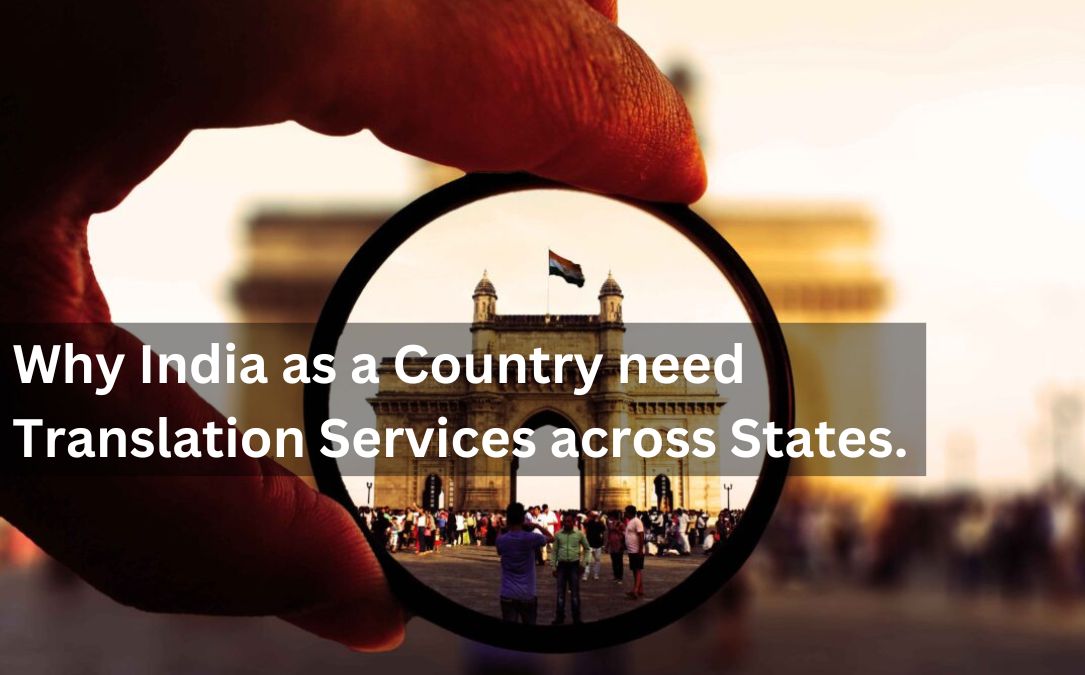India, a land of unparalleled cultural diversity, boasts a rich tapestry of languages and dialects spoken across its vast expanse. From Hindi and Bengali to Tamil and Gujarati, India’s linguistic diversity is both a source of pride and a logistical challenge. In this diverse linguistic landscape, the necessity for translation services across states becomes paramount.
India’s linguistic diversity is staggering, with the Eighth Schedule of the Indian Constitution recognizing 22 officially recognized languages. However, this figure barely scratches the surface of the linguistic mosaic that encompasses hundreds of dialects and languages spoken across the nation. Each state in India often has its own dominant language or languages, which can vary significantly from one region to another.
One of the primary reasons for the need for translation services across states in India is the barrier to communication. While English serves as a lingua franca in many urban and professional settings, it remains inaccessible to a significant portion of the population, particularly in rural areas. Effective communication is essential for governance, commerce, education, healthcare, and every facet of public life. Without adequate translation services, meaningful communication becomes challenging, hindering progress and development.
Moreover, India’s linguistic diversity is not merely a matter of semantics; it is deeply intertwined with cultural identity and heritage. Language is more than a means of communication; it is a repository of tradition, knowledge, and history. Preserving and promoting linguistic diversity is crucial for nurturing a sense of belonging and inclusivity among India’s diverse population.
In the realm of governance and administration, translation services play a pivotal role in ensuring that government policies, laws, and regulations are accessible to all citizens, irrespective of their linguistic background. By providing translated versions of official documents and forms, governments can empower citizens to participate more actively in the democratic process and access essential services without linguistic barriers.
Furthermore, India’s burgeoning economy relies heavily on effective communication and collaboration across linguistic boundaries. In a globalized world where business transactions transcend geographical borders, the ability to communicate effectively in multiple languages is a competitive advantage. Translation services facilitate seamless communication between businesses, customers, and stakeholders, fostering economic growth and innovation.
Education is another domain where translation services are indispensable. India’s educational landscape encompasses a myriad of languages, each with its own unique script and literary tradition. Providing educational materials and resources in regional languages not only facilitates learning but also fosters a deeper understanding and appreciation of one’s cultural heritage.
In the healthcare sector, accurate communication between healthcare providers and patients is critical for ensuring effective diagnosis, treatment, and care. Language barriers can lead to misunderstandings, misdiagnosis, and ultimately, compromised patient outcomes. Translation services bridge the gap between healthcare professionals and patients, ensuring that vital medical information is conveyed accurately and comprehensively.
In conclusion, the need for translation services across states in India is not merely a matter of convenience; it is a fundamental requirement for fostering inclusivity, promoting cultural diversity, and driving socio-economic development. By investing in translation infrastructure and promoting multilingualism, India can harness the full potential of its linguistic diversity, paving the way for a more inclusive and prosperous future for all its citizens.
As India continues its journey towards progress and development, embracing its linguistic diversity will be key to unlocking new opportunities and realizing its full potential on the global stage. Through collaboration and cooperation, India can build bridges across linguistic divides, uniting its diverse population in pursuit of shared prosperity and collective growth

